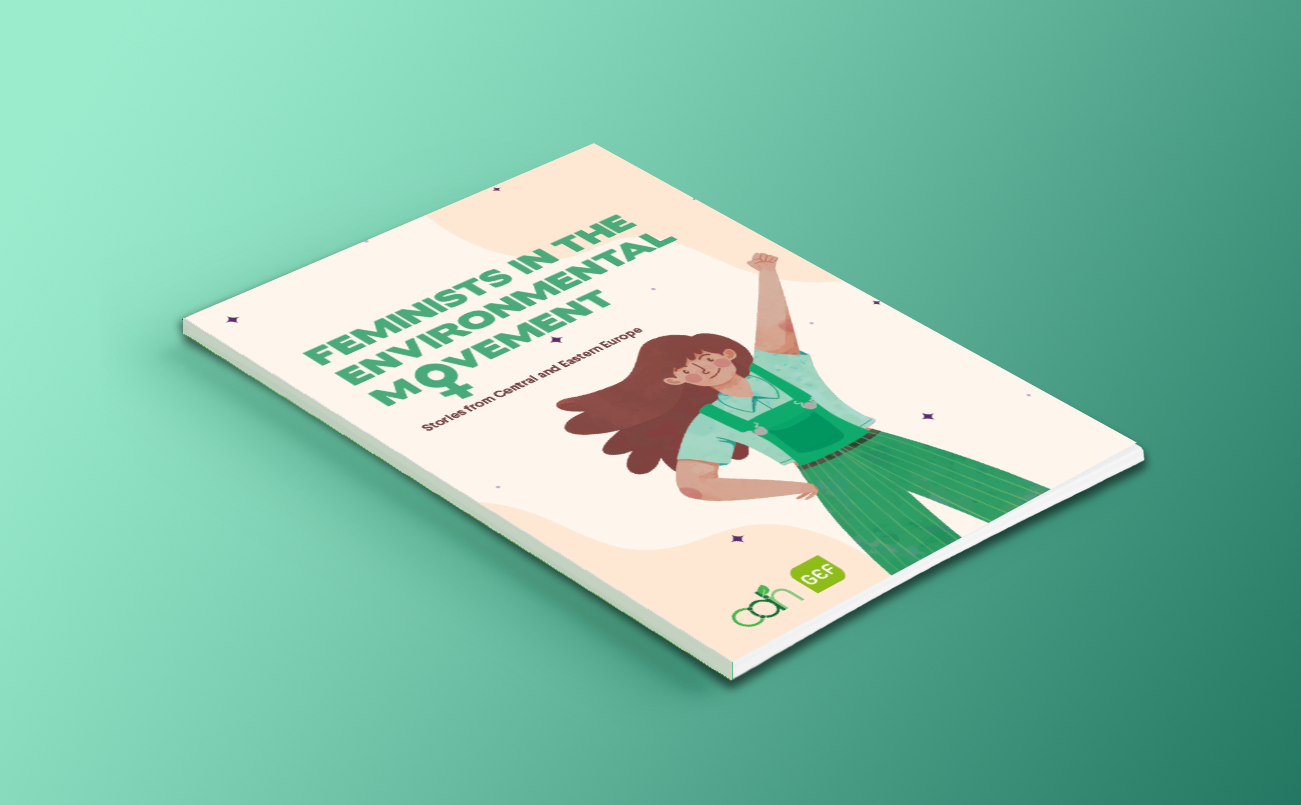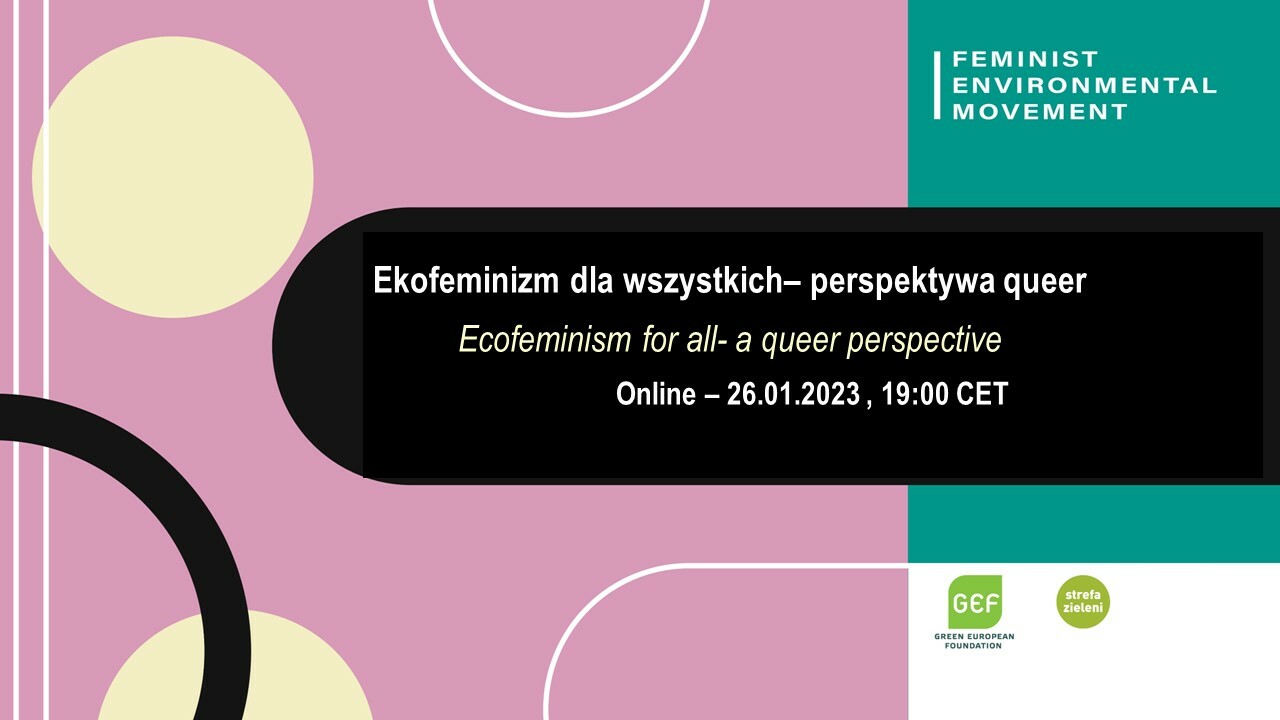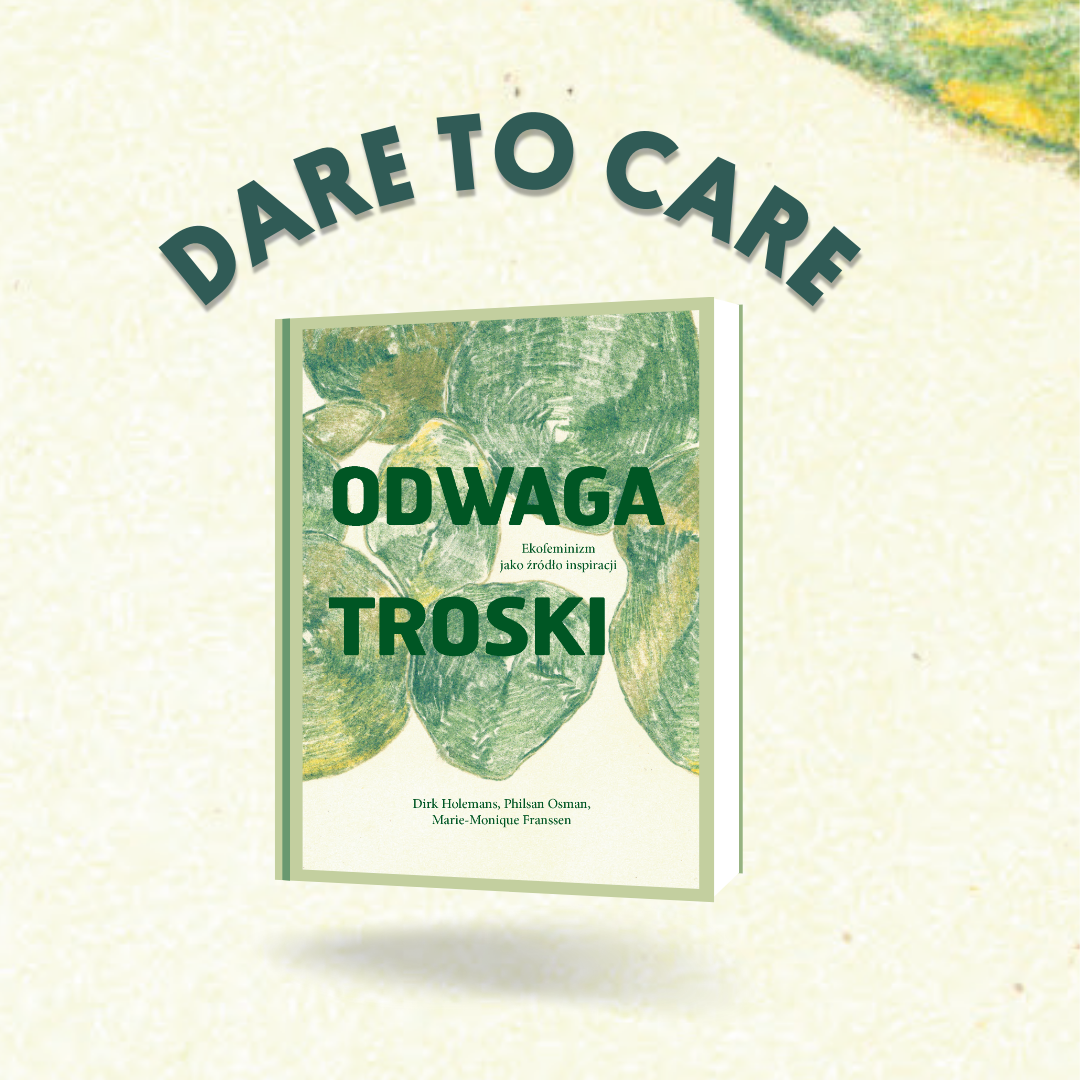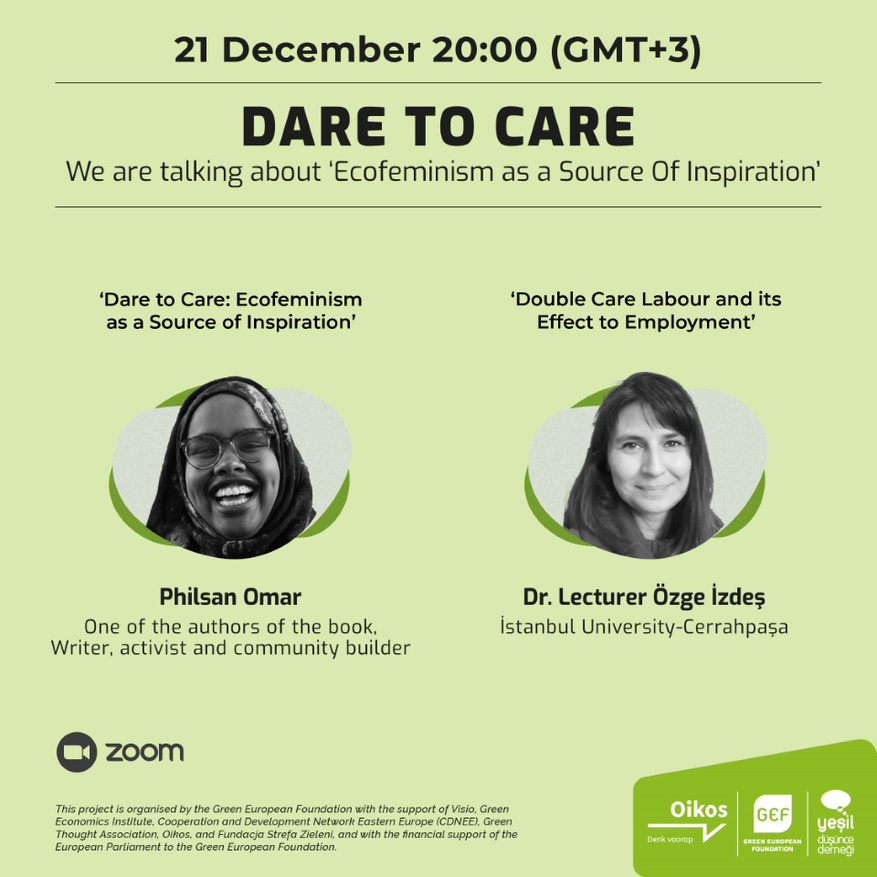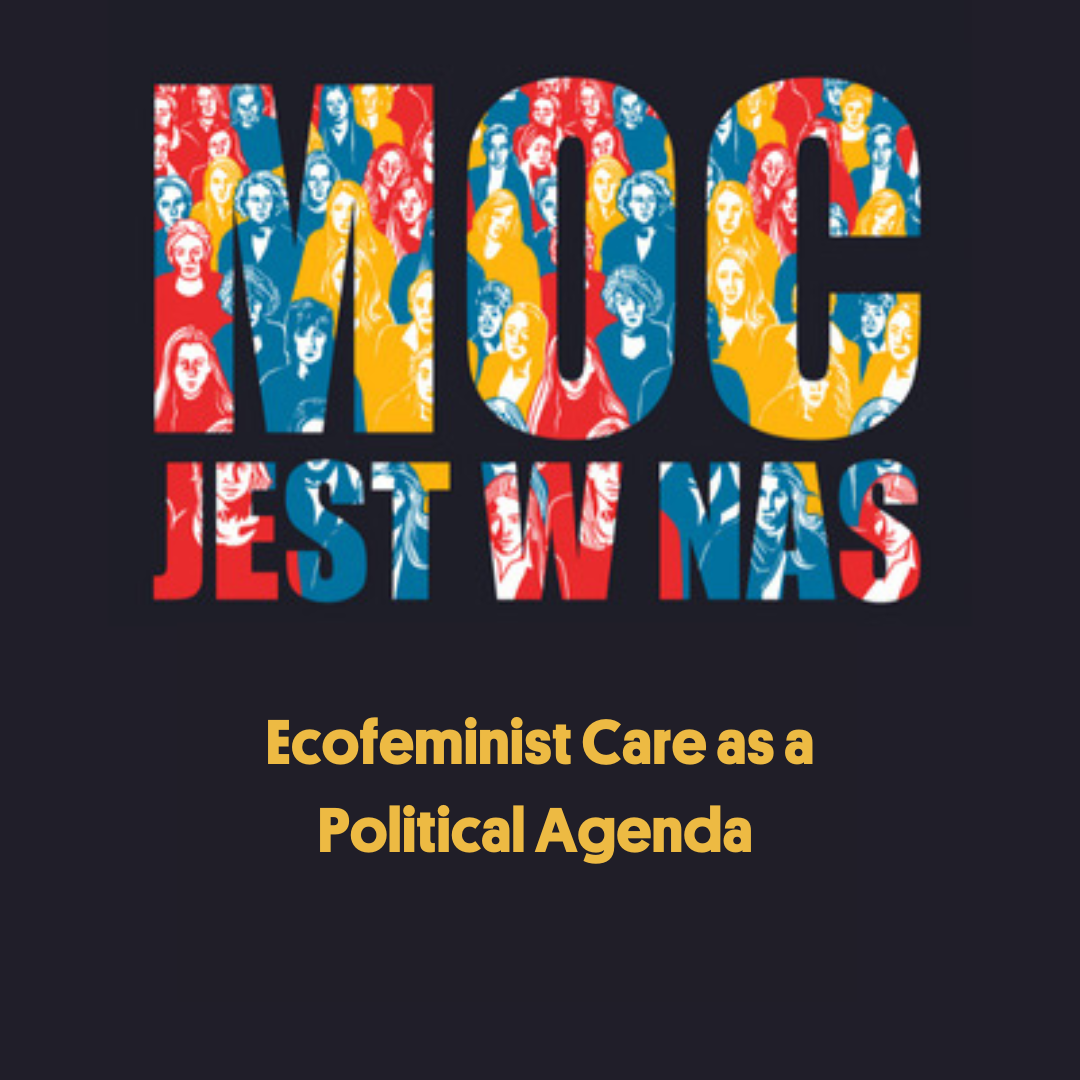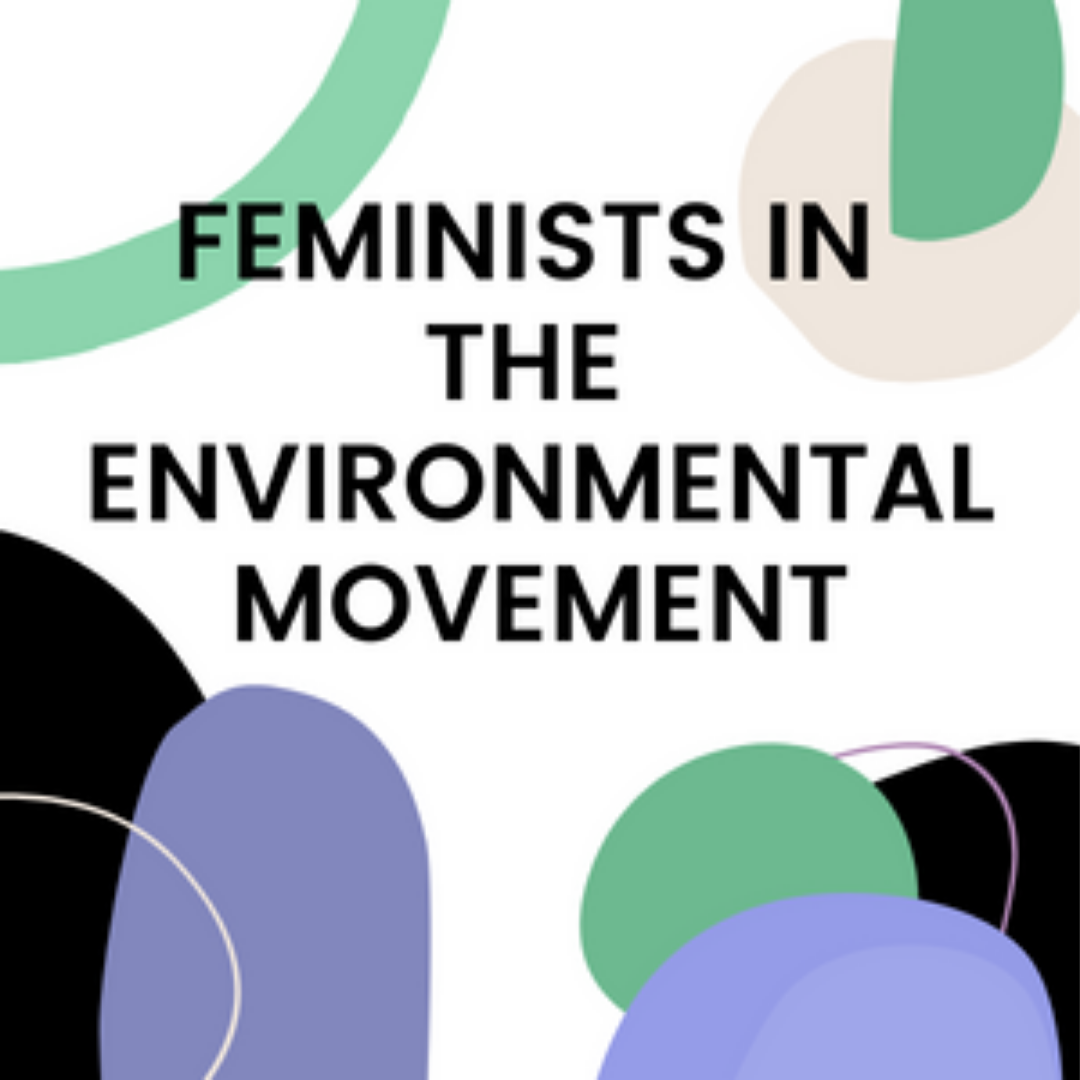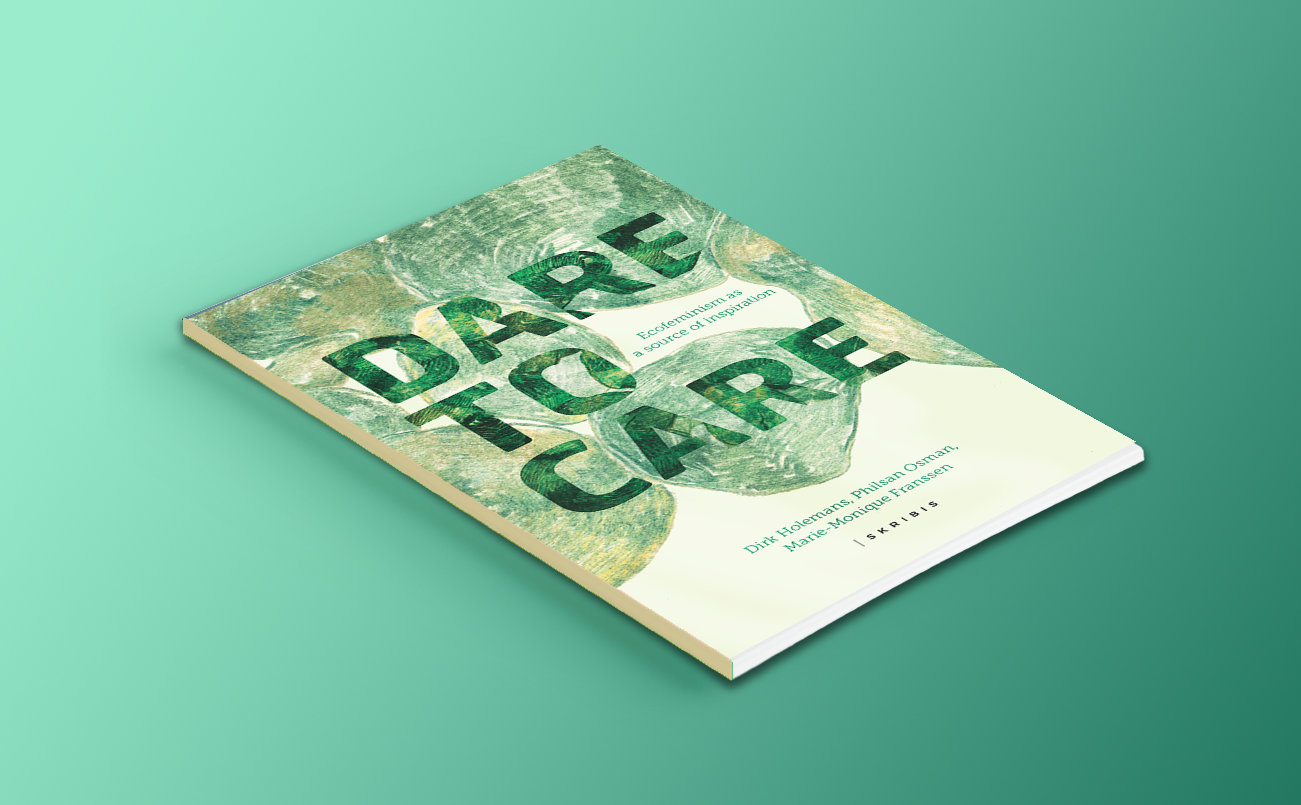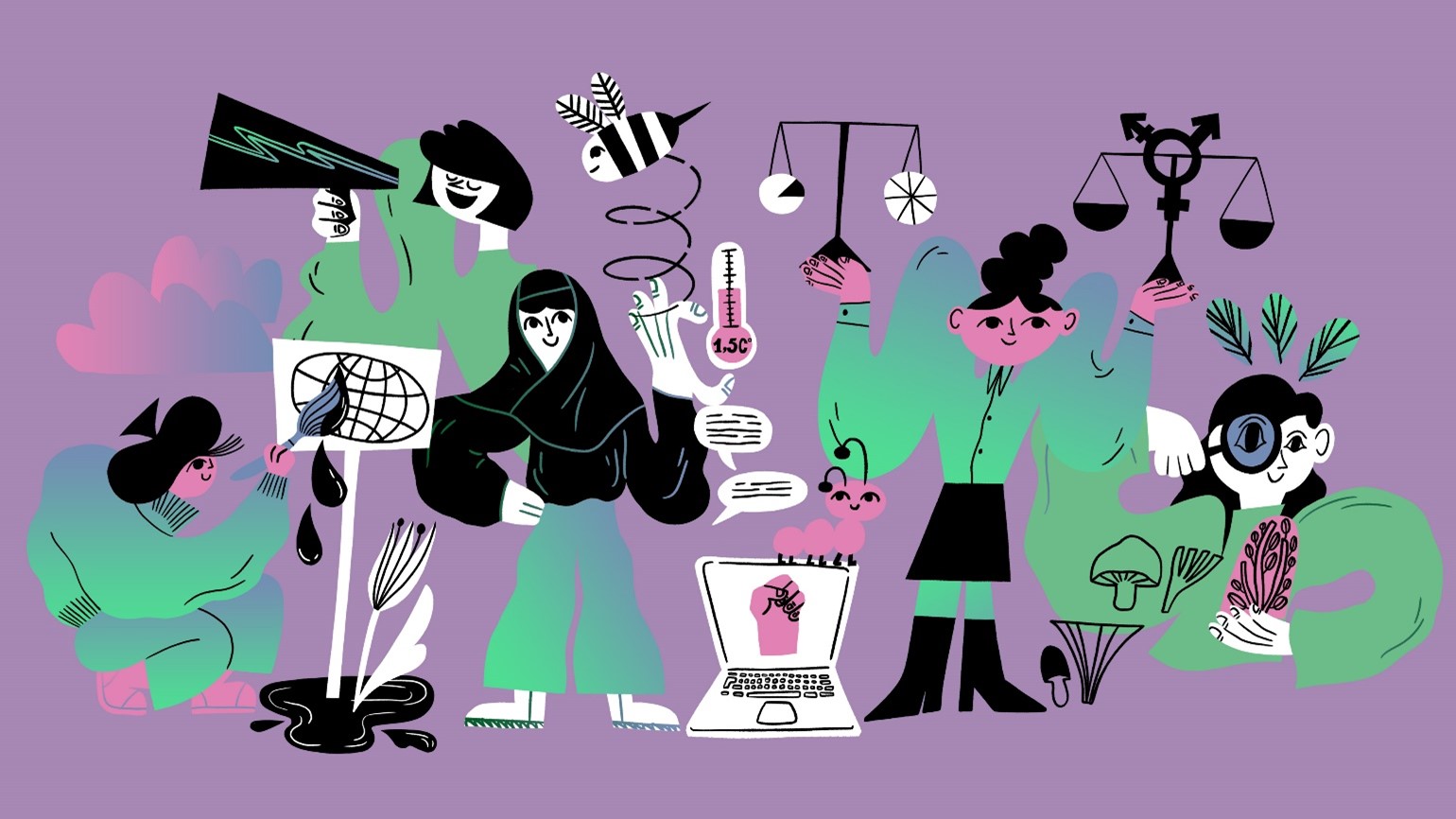
About the event
Being a feminist in the environmental movement requires understanding the wider context of the concept as well as having the courage and ability to charge your mental and emotional batteries in order to face the many struggles. This short, empowering online training will gather feminists from different European countries to reflect on their experiences and deepen their understanding of key feminist challenges at the European level.
Participants get the opportunity to:
- Network with other feminists from different European countries
- Share experiences, learn from each other and guest speakers
- Visualise together a brighter feminist future for Europe and a feminist Green Deal
Learning objectives for the coaching:
- Applying feminist perspectives in diverse situations and reflect on one’s position in relation to other people and society
- Identifying connections to feminism in different areas of politics as well as in human and non-human life
- Gaining methodological skills by familiarising with two participatory methods (Timeout – dialogue method and Futures Frequency – workshop method) that you can use in your community / activism
- Understanding the main feminist challenges at European and national level, and dealing with backlash
Programme
This training consists of three online coaching sessions.
Pre task: Get familiar with GEF’s Green Feminism e-course. Members will get orientation material 5 days before the first training session.
1st session / Fri 17 Feb 17-20:00 (CET): Key Feminist Struggles in Europe and Nationally
Short introduction to the topic and facilitated dialogue between participants through Timeout – dialogue method. This first session is dedicated to experience sharing by deep listening and mindful speaking.
2nd session / Fri 24 Feb 17-20:00 (CET): Advocating Green Feminism in EU
Introduction to the topic by guest speaker (TBA). The guest speaker shares her experience as a feminist in the environmental movement at EU-level / European parliament. After the introduction, there will be a facilitated dialogue between participants through Timeout – dialogue method.
3rd session / Fri 3 Mar 17-20:00 (CET): The Future is Feminist: What Would that Look Like?
Our ideas about the future guide our actions in the present. That is why it’s important to challenge various assumptions about the future. It’s difficult to realize a future that we can’t imagine. If our imagination is narrow, we may reduce the range of possible futures. In this workshop we visualize feminist future, specifically a feminist European Green Deal, and plan actions towards it.
Practicalities
This training series will be held online via Zoom on three consecutive Fridays: February 17th, February 24th, and March 3rd.
This is a closed training. Selected participants have been informed and will receive the necessary practical info.
All sessions follow the rules of safer space by Educational Center Visio. This means that any kind of discriminatory speech or actions are prohibited. Each participant commits to follow the rules as well as the rules of constructive dialogue including respectful behaviour, listening deeply, and respecting each other’s privacy.
The methods used in the training were both developed in Finland. Timeout aims to foster constructive dialogues, Futures Frequency aims to build alternative, hopeful future scenarios.
This training series is organised by the Green European Foundation with the support of Visio and the financial support of the European parliament to the Green European Foundation.

